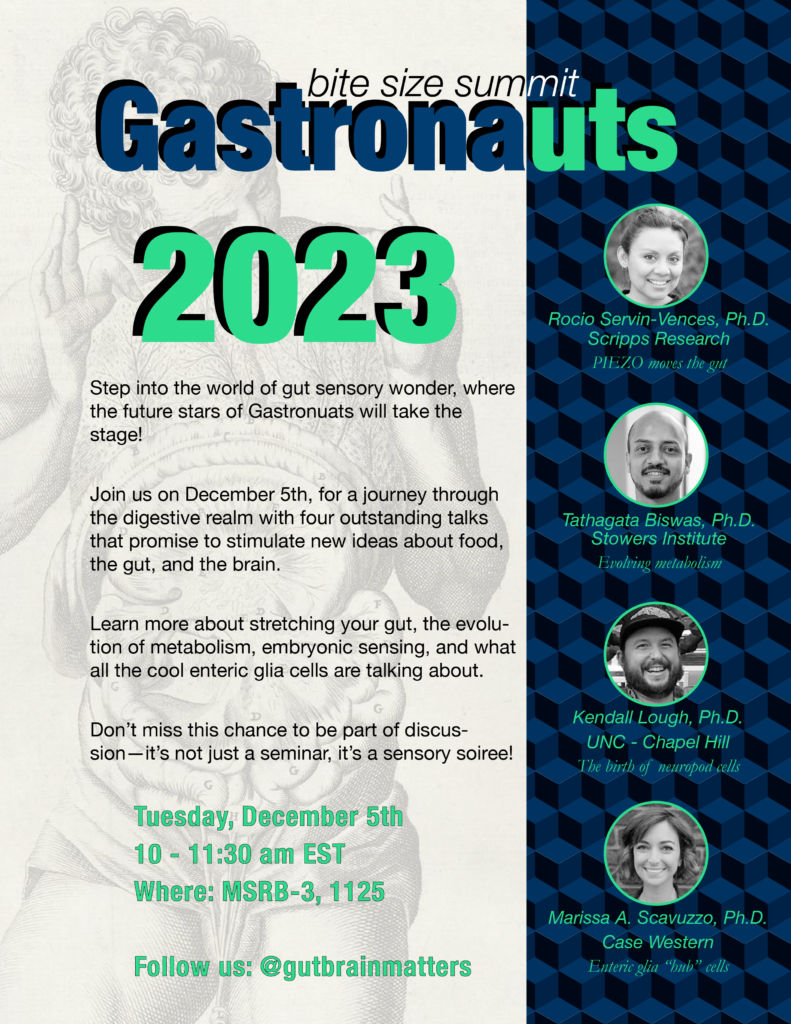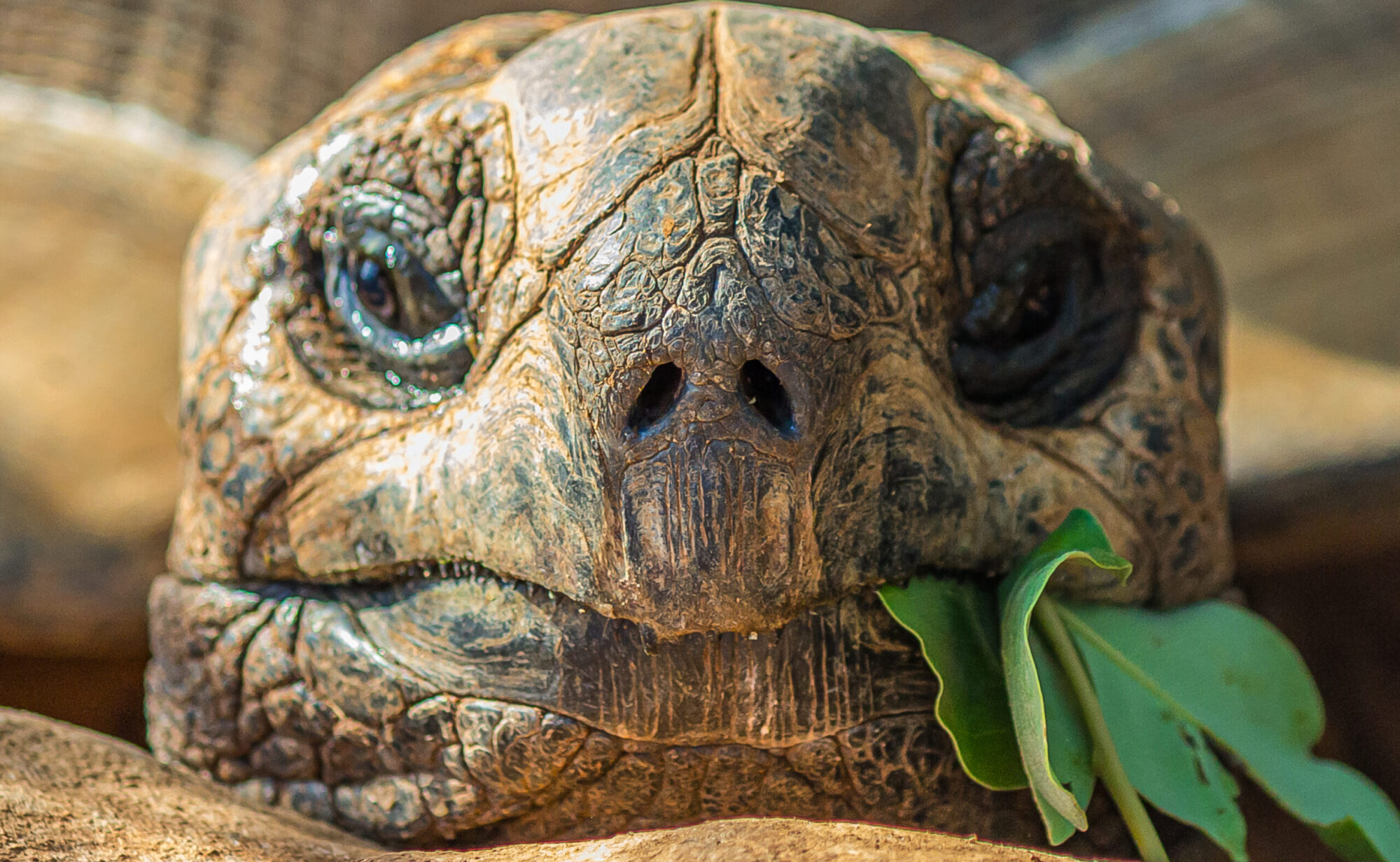“Every act of perception, is to some degree an act of creation, and every act of memory is to some degree an act of imagination.” — Oliver Sacks, Musicophilia
Gastronauts Season 9 will continue to be hybrid with at a new, more globally inclusive time of 10am EST. This season we will explore the sensory world of your connection to the viscera.
September 2023: The RNA biology of psychedelics
Andrea Gomez, Ph.D., is an Assistant Professor at the University of California Berkeley. Andrea’s laboratory seeks to understand the mysteries of the mind at the intersection of psychedelics and plasticity. The laboratory uncovers how these trippy compounds shake up our synaptic playground by using a combination of molecular biology, functional imaging, and slice electrophysiology to understand neural plasticity in neural degeneration and the potential therapeutic use of the active components in psychedelics.
October 2023: The sense of sour
Emily Liman, Ph.D., is a Professor of Biological Sciences at the University of Southern California. Dr. Liman is a world-renowned sensory neurobiologist who has advanced our understanding of taste perception through her groundbreaking discoveries including that of the OTOP channel—a key player in our ability to perceive the sour taste of a juicy lemon.
November 2023: Interception meets nutrient sensing
Greg Seeing-Bae Suh, Ph.D. is a Professor at KAIST in South Korea. Dr. Suh explores the fascinating world of how brains process external stimuli and generate behavioral responses. Using the fruit fly and advanced genetic tools, his group investigates the neural substrates behind innate behaviors. They’re also delving into the identification of internal sensors for nutritional value in both fruit flies and mice, shedding light on how mammals perceive and respond to nutrients.
December 2023: Bite Size Summit

January 2024: When pain and hunger collide
J. Nicholas Betley, Ph.D. is an Associate Professor at the University of Pennsylvania. Nick’s work explores the interplay between internal cues and changes in the external environment, shedding light on how the brain prioritizes signals of need. His recent discovery reveals a compelling link between hunger and pain, and proposes a neural circuit that weighs and judges competing survival needs.
February 2024: Visceral pain, Gucy2c, and the neuropod cell
Scott Waldman, M.D., Ph.D. is the Chair of Pharmacology, Physiology, & Cancer Biology at Thomas Jefferson University. Scott’s work is at the intersection of science and the human experience. And while visceral pain may not be the experience we want, we can’t ignore that it is ongoing issue with few effective treatments. Scott’s work has identified GCC in gut neuropod cells as a potential therapeutic target and because of the close collaborative nature of Jefferson and their hospital, he has been able to translate his basic science work on GCC to potential clinical applications.
March 2024: The flow of reward through the accumbens
Ranier Gutiérrez, Ph.D. is a Professor of Pharmacology at the Centro de Investigación y de Estudios Avanzados del Instituto Politécnico Nacional (CINVESTAV-IPN). Ranier’s work uses cutting-edge technology to elucidate the neural pathways underlying our relationship with food. Ranier shared some of his recent work on how reward information flows through the nucleus accumbens to influence decision-making.
April 2024: Blood sensing in mosquitos
Laura Duvall, Ph.D. is an Assistant Professor at Columbia University. Laura’s research investigates the neurobiological mechanisms underlying mosquito behavior, including the regulation of host-seeking after blood-feeding, circadian and seasonal biting rhythms, and mating behavior. She employs pharmacological and genetic approaches to uncover the neuropeptide pathways and anatomical circuits involved in these behavioral switches, shedding light on fundamental questions regarding mosquito biology.
May 2024: Wired for hunger
Michael Krashes, Ph.D. is a Senior Investigator at NIDDK in the NIH. His laboratory is on a mission to decipher the wiring diagram for hunger. His current work seeks to uncover the secrets behind our most primal instincts for survival, such as, the oscillating interactions between self-preservation and food-seeking to optimize behavior. His research is shedding light on the intricate mechanisms that govern our relationship with food.
